As we emerge from a winter of discontent and global food systems go from bad to worse, there’s trouble in paradise.
At the root of these problems, government responses to COVID-19 have contributed to a six-fold increase in famine-like conditions as global supply chains collapse, and field trials for gene-edited crops and farm animals begin in the UK.
Against this perfect storm, the UN’s World Food Systems Summit convened in September last year, with Member States joining the private sector, civil society groups and researchers, to bring about “tangible, positive changes” to the world’s food systems and, as the story goes, “drive recovery from COVID-19.”
But even if we could solve our problems using the same logic that created them, there were deeper, institutional problems undermining the integrity of the Summit. Specifically, its corporate capture by one man, whose vision of the future of food security places the interests of civil society and farming communities in a different universe to the corporations he is beholden to.
A household name on the world stage of disaster-capitalism, there is more to Bill Gates than doomsayer-general terrorising the world's population into a permanent state of suspended animation, and it typically involves the future of food security.
America's Fast-Food Impresario
In less than a decade, Gates has become America’s largest private farmland owner, acquiring more than 269,000 acres of prime farmland in the US, including the 100 Circles Farm where fast food giant McDonald's potatoes are grown. Gates effectively owns McDonald's fries, his commitment to public health aside.
On the one hand Mr. Gates is the most influential player in global public health, following in the footsteps of his spiritual leader, John D Rockefeller. On the contrary, he backs a confederacy of fast food brands that are killing more people globally than tobacco and driving those who survive towards the very pharmaceuticals which he also wheels and deals to the 50% of all Americans suffering from chronic health disorders.
When it comes to fast food, Gates owns 7.8% of Warren Buffet’s investment vehicle, Berkshire Hathaway, which controls 39% of the largest Subway fast food franchise in the world and 9.3% of The Coca Cola Company. That's in addition to the Gates Foundation’s 16.8% stake in the largest Coca-Cola bottling franchise in the world. Thats the same Coca-Cola who were named, for the fourth consecutive year, the world's biggest plastic polluter.
But Gates' environmental effrontery is only part of the problem. He also backs multiple ventures blurring the lines between food and tech, and if, indeed, Mr. Gates has his way, the food of the future will little resemble what’s served on our plate today. That's because his centre of gravity is GMO’s. He owns 500,000 Monsanto shares worth a modest $23 billion, making him, by implication, the sworn enemy of everything under the sun organic and sustainable. There's the Gates-funded Impossible Burger, made from genetically engineered soy and yeast, with its manufacturer, Impossible Foods, owning twenty five patents on artificially replicated cheese, beef and chicken.
Another Gates-backed start-up doing the rounds on the capital markets is Ginkgo Bioworks. According to their mission statement, Gingko will produce custom organisms, using cell programming technology to genetically engineer flavours and create ingredients for ultra-processed foods. Their plan is to license over 20,000 engineered cell programs to the food industry.
If, indeed, the agrifoodtech ventures Gates is bringing to market continues to flourish, traditional diets will soon be replaced by lab cultivated meat and other Frankenstein foods. Gates might have all the appeal of a five-star fine dining experience, but in reality ‘you’ll get what you're given.’
Thats because like Rockefeller before him, Gates is transforming our relationship with how we grow food, only he's weaving climate change and the new age mantra of ‘following the science’ into his worldview.
This typically involves genetics, agrichemicals, and a shedload of automation, with his foundations industry partners operating Herculean monopolies over services and supply chains. What is of little importance to Mr. Gates are the social and environmental costs of his ventures. Or at least, he promotes one set of values, and invests in another.
Take for example this widely read blog post from 2019. On the one hand Mr. Gates accepts that agriculture accounts for 24% of global greenhouse emissions, but thanks to the 100 Circles transaction, Gates is the largest farming real estate ticket holder in the US, with 269,000 acres of prime farmland, even though, we are told by the likes of Gates, that agriculture makes up as much as 70% percent of fresh-water usage globally, leads to greater soil erosion, deforestation, and, you guessed it, climate change.
Synthetic Fertilisers, The Green Revolution and Eugenics
With no attempt at concealment Gates flouts the very values of low carbon and sustainability which he himself helped to popularise. From the carbon footprint of his farmland holding to $1.4 billion invested in the world’s biggest fossil fuel companies, Gates backs all the largest corporate perpetrators on the list of the European Commission's top 5 causes of climate change.
When it comes to unsustainable scientific interventions, however, nothing quite hits the mark like synthetic fertilizers, which Gates describes as the “magical innovation that’s responsible for saving millions of lives from hunger and lifting millions more out of poverty” What he fails to divulge is that synthetic fertilizers pollute the world's water sources, destroy the world's largest carbon sink, the soil, exhaust the soil's natural nitrogen deposits, deplete the soil's microbial biomass, and, according to the intergovernmental panel on climate change, are one of the key drivers of climate change.
Taking no notice of these facts, synthetic fertilizers are central to Gates’ master plan for the future of food security. He’s under the spell of Europe’s biggest fertiliser producer, Yara, who are not only causing climate catastrophe, their top executives were sent to prison in one of Norway’s biggest corruption scandals, There’s also the small matter of his 14.4% ownership of Canadian National Railways - one of the most important fertiliser supply chain operations in North America.
On the one hand Mr. Gates uses his influence to transform public policy towards high input farming interventions, on the other he directly profits from their deployment. What is of little importance is whether these interventions are fit for purpose.
Synthetic fertilisers, for example, were once solely derived from natural and organic farming practices, including compost, animal manure and crop rotation – which have been shown to be more robust, sustainable, and profitable to farmers. That was until the arrival of the Rockefeller Foundations’ Green Revolution in the 1950’s, which galvanised an industry-wide overhaul to chemical interventions, large scale, technology driven monoculture and hybridized seeds. Modernisation that heralded the arrival of mega corporations into global farming and the reliance of small-scale farmers on their products and services.
But that's only half the story. A generation before the Rockefeller Foundations, Green Revolution, John D Rockefeller (the first) belonged to a group of prominent industrialists at the turn of the century, including the Carnegie and Harriman families, who were committed to facing off a threat presented to America’s Anglo Saxon ruling elites by inferior genes, such as they were considered. Culminating in the adoption of eugenics programs across the US, which set out to eradicate the poor, feebleminded and ethnic minorities from the gene pool, through the forced sterilization of eighty thousand so-called defectives. That was until the Nazis’ race-purification programs were revealed to be imported from America's flourishing eugenics movement, which, to say the least, proved to be a public relations disaster for eugenics.
The solution was to distance the pseudo-science from the holocaust by transmuting eugenics into the morally acceptable fields of birth control and genetics, with the reconstruction generously funded by the Rockefeller and Ford foundations, until eventually many of the original eugenics institutions morphed into today’s medical genetics organisations.
Fast forward a generation and many of the principles of eugenics were put to work in the Green Revolution of the 1950’s, when John D Rockefeller Jr brought the gene revolution and its hybridised seeds to India. Signalling man's conquest over nature and the principle that only the strong, amongst plants and animals, should thrive and survive.
Half a century later Gates would come to inherit this legacy through his foundation's programs in Africa. As is often noted, Gates' father was the head of Planned Parenthood, one of the birth control descendants of the original eugenics’ movement founded by prominent American eugenicist, Margaret Sanger. Explaining why the Gates foundation is today active across the barometers essential for life itself - birth, health and food, and why no other organisation is so deeply enmeshed in medical genetics, from GM seeds and farm animals to the mRNA gene-based vaccine to the myriad birth control organisations funded by Mr. Gates, these principles are central to his philosophical worldview, which like Rockefeller before him, involves the aberration of man meddling with natural laws to rein in a subordinate nature. If, indeed, Gates has a maxim, then it’s science over nature, man above God.
Imperialism in the Global South
Gates' way of doing business means preferential treatment for corporate America, and a big nothing burger for farming communities. This can be seen across all areas of agricultural innovation where Gates has imposed himself. From hybridised seeds to agrochemicals, Gates and his industry partners are industrialising and digitising agriculture in the Global South and ushering in a new brand of imperialism under the banner of public private partnerships. Far from lifting farmers out of poverty or addressing so-called climate change, communities are being robbed of their livelihoods and the environment is in turmoil.
Take for example his partnership with America’s largest privately held corporation, Cargill, who have been implicated in a slew of scandals - from child slave labour to selling contaminated meat to destroying the Amazon.
Cargill is the biggest global player in the production and trade of soya, the world's number one exported agricultural commodity globally supplied to the global livestock and biofuels industries.
With Brazil the leading soya bean producing country, it has been estimated 19% of the Amazon deforested to date, 5% of this moonlight requisition has been carried out by mega agribusiness corporations, including: Cargill, Monsanto, Bunge, and Archer Daniels Midland.
Though Gates has sold much of his stock, his foundation’s investment portfolio has owned, traded, and profited from stock in four of the top five global players in the soya trade. The dark irony, as Gates points out in his blog, is that “when soil gets disturbed—like it does when you convert a forest into cropland—all that stored carbon gets released into the atmosphere as carbon dioxide.” And consequently “deforestation is responsible for 11% of all global greenhouse gas emissions.”
If Mr. Gates' complicity in torching the Amazon wasn’t enough, his Foundation is involved in a $10 million partnership with Cargill to develop the soya value chain in Mozambique and elsewhere in Africa, priming an otherwise untapped African market for ‘Brazilian style’ GM soybean implementation. In what has become a standard issue play, Gates enters the market as a white knight advocating for the environment and smallholder farmers. But the trick is, he’s quietly facilitating privatisation deals, increased dependency on agrochemicals, an overhaul to patented seeds and GM monocrops – culminating in corporations like Kentucky Fried Chicken cornering new markets and small famers and local diets overhauling to factory farmed economies. In every conceivable way this is catastrophic for small-scale farmers who are the key drivers of local wealth creation in Africa and supply most of the affordable food across the continent.
The Gates Foundation in Africa
In everything but name Bill Gates is the most influential player in global agricultural policy, operating, as you would expect, with no oversight, accountability, or public scrutiny on how his foundation's influence is managed. Gates redirects unpaid tax dollars - that would otherwise be spent in the US under a far higher degree of public scrutiny - into influencing public policy in developing markets. When he's not priming those markets for the smooth entry of his business interests, he’s donating billions, through a circular investment strategy, to the very companies and industries which his foundation owns stocks and bonds in. As Vandana Shiva puts it, ‘the Bill & Melinda Gates Foundation is the new World Bank when it comes to using finances to influence policies in agriculture.’
Consider that Gates is the second largest funder of CGIAR - a consortium of 15 international agricultural research centres, conceived by the Rockefeller Foundation in the heyday of the Green revolution.
On paper, CGIAR is concerned with the usual tropes of reducing poverty, increasing food security, and ensuring sustainable management of natural resources. The reality, however, is that CGIAR is a front for corporate America’s neoliberal policies, priming developing markets for the entry of US backed multinationals, and transferring ownership of land and seed rights from small scale farmers to agribusiness giants such as DuPont, Bayer, and Syngenta.
Gates’ self-integrating pledge to help millions of smallholder farmers adapt to the impacts of global warming is nothing short of intellectual property piracy and corporate seed monopolisation, advanced through the influence of CGIAR over public policy and intellectual property laws in the Global South. As noted by Vandana Shiva:: ‘Control over the seeds of the world for “one agriculture” is Mr Gates’ target! '
This is being achieved through Gates and the CGIAR appropriating the seed legacy of farmers from around the world and storing them in a private facility in Svalbard in the Arctic, known as the “Doomsday Vault.” There are, by some estimates, over 700,000 accessions of farmer’ seeds held in CGIAR gene banks, representing the largest and most widely used collections of crop diversity in the world.
At the same time, Gates is funding organisations like Diversity Seek (DivSeek) - an organisation focussed on creating patents on seed collections through their genomic mapping, and with over 700,000 crop ascensions held in gene banks, DivSeek could eventually allow a handful of corporations to own this entire catalogue of seed diversity. And we're not just talking about GM seeds. A March 2015 ruling by the EU Patent Board (EPO) granted patents for two plants bred conventionally, rather than genetically engineered. Despite the EPO later deciding that patents on conventionally grown plants and animals should not be granted, there are several examples showing how the exploitation of legal loopholes have allowed the EPO to continue granting patents on non-GM seeds, from beer to barley, melons to lettuce.
If, indeed, these patents continue to be granted on the results of open crossbreeding processes, a single patent, say on a simple cross-bred apple variety, could be used to cover hundreds of other apple varieties, leading to one patent owner having legal rights to all varieties of apples. As large corporations acquire control over our food production, decide what we eat, what farmers produce, what retailers sell and how much we all have to pay for it. Until eventually everything from seeds to livestock, microbes in the soil to the processes we use to make food are subject to the same trademarks as brands like Coca-Cola.
Revitalising the failed Green Revolution
Gates' arrival on the agrarian philanthro-capitalism scene began in 2006 with Alliance for a Green Revolution in Africa (AGRA) - a partnership between the Gates and Rockefeller Foundations that takes as its modal, the Rockefellers’ Green Revolution half a century earlier.
The original Green Revolution introduced capital intensive, high-input, industrial agriculture, and the gene revolution to Asia and Latin America, on the face of it, providing short-term increases in crop yields, but on the back of devastating environmental and social costs. The ripples of which continue across India today with degraded soils, biodiversity decline, health disorders from pesticides, and an overall decline in farmers’ incomes; culminating in a full-blown agrarian crisis by the 1990s, an epidemic of suicides amongst farmers, and more recently, farmers protesting the 2020 Indian Agriculture Acts.
Ignorant of these lessons from history, Gates has essentially revitalised the ghost of the Green Revolution, this time in Africa. Using the influence of his Foundation to drive agriculture reforms across the continent, while bringing to market much of the same Rockefeller inspired innovations, such as high-yield seed varieties, synthetic fertilizer and chemical pesticides, as the story goes, to fight world hunger and poverty.
What Gates is decidedly quiet about, however, is AGRA’s extensive ties and particularly financial interests with the largest chemical pesticide and synthetic fertiliser corporations, who, it turns out, have been the clear winners of AGRA’s programs since 2006.
Now after fourteen years of studies, what becomes clear is that since AGRA’s arrival in Africa, farmers' incomes have stagnated, their freedom of choice has declined, and overall food security has worsened. What Gates' rudderless approach fails to observe is that the Green Revolution was always based on Western-style agriculture, and particularly its reliance on fertilizer, weed killers and monocrops - technology that is simply not viable for farming in most of Africa. On the contrary Africa is too dry for thirsty crops, and the extensive use of fertilizer has a devastating impact on the fertility of the soil. Gates operates with the veneer of pouring oil on troubled waters, but the truth is, he’s fanning the flames of future crises.
Since its foundation, AGRA has received contributions of around $1 billion, primarily from the Bill and Melinda Gates Foundation. From these donations, AGRA has awarded grants of more than $500 million, while at the same time African governments plough public funds into AGRA’s programs, through subsidy programs (FISPs), which incentivise farmers to purchase hybrid seeds and synthetic fertilizers, but the catch is - these products are provided on long-term contracts by, none other than, AGRA’s commercial partners, and are, to say the least, costly and often unnecessary inputs that significantly increase a farmer’s risk of falling into debt. Examples from Tanzania show that farmers are falling into debt with seed and fertilizer corporations, and some have been forced to sell their livestock. A recent analysis in Malawi concluded that the cost of fertilizer was so high that farmers lost money.
Upon its foundation, AGRA set out to double the agricultural yields and incomes of thirty million smallholder farmers. Sounds good on paper, but not so fast.
Fourteen years after AGRA was founded, the initiative has been a spectacular failure. Rather than combating hunger and poverty, hunger has increased across the AGRA focussed countries by 30%, with an additional thirty million more hungry people in Africa since AGRA’s inception. By 2018, yields in the focus countries had increased by 18%, instead of the 100% AGRA promised, whereas, in the period before AGRA, yields in the same countries had grown by a steady 17%.
Not pulling any punches, research from Tufts University shows a decline in yields in Nigeria, the largest maize producer among AGRA countries, with less than 0.5% per year, compared to 2.5% annual yield growth pre-AGRA. Meanwhile Zambia, AGRA's sixth largest maize producer, posted an annual average of 2% increase in maize yields, whereas yield growth before AGRA was more than double at 4.2% per year. In the fullness of time, therefore, AGRA’s cursory approach has had zero or net negative impact on overall productivity, despite the billions of dollars ploughed into its programs.
Several reports have criticized the true cost of Gates' green revolution, from increasing costs of production to exacerbating poverty and inequality amongst farmers. An alliance of sixteen African and German organizations conducted extensive analysis into AGRA’s operations and published their findings in this report, concluding that AGRA’s Green Revolution approach did not even provide the farmers involved with incomes above the poverty line and that AGRA systematically exerts political influence on fertilizer and seed legislation to the exclusive benefit of agribusiness.
In the end, AGAR were hoisted by their own petard, when these conclusions were unwittingly confirmed in an internal evaluations document, obtained under a Freedom of Information Request by non-profit investigative research group, Right to Know. But despite these admissions of incompetence, AGRA’s programs continue unencumbered.
Gates Ag One
The latest pallbearer to Gates’ agricultural requiem, is the Bill & Melinda Gates Agricultural Innovations, LLC. Ag One, as it will be known, will take Gates’ libation of gene editing technologies, patented seeds, and fossil fuel fertilizers to the intersection of ‘technological advancements’ and ‘scientific breakthroughs.’
The plan, according to Mr. Gates is to bridge the data gaps of the global south, meaning Ag One’s focus will be digitising farming in sub-Saharan Africa and South Asia, using digital agricultural sensors to collect massive amounts of data on everything from planting to farm gate. In other words, the knowledge of indigenous farmers, developed over thousands of years, will be converted into the intellectual property assets of corporations, and in an audacious twist of fate, sold back to those farmers on subscription.
What is equally striking is that this data will eventually be used to accelerate an overhaul to smart-farms, digitised agriculture and ultimately AI. What Gates means by ‘filling the data-gaps in developing markets,’ or ‘providing data as a resource,’ is, nothing short of intellectual property piracy and the harnessing of farmers data, to build maps, predictive models and enable AI to pick up on the ingenuity and know-how of small-scale farmers. Setting the scene for AI to take over the farming sector entirely, and, in the fullness of time, make indigenous farmers obsolete.
Ag One will also be involved in the usual shakedown of farmers towards high input agrichemicals and GMO’s. Opening previously untapped markets in Africa, South Asia, and Latin America for the benefit of Gates-backed private corporations. In Latin America, for example, Ag One has already agreed implementation partnerships with a host of syndicated partners, including: Microsoft, Bayer, Corteva and Syngenta.
At the same time, the Gates Foundations’ ‘Strategic Investment Fund’ - which is focussed on equity participation in for-profit companies - is backing multiple start-ups involved in the development of the very ‘technological advancements’ which, conveniently for Mr Gates, Ag One will promote in its focus countries. This includes a $7 million equity stake in AgBiome, a biotech start-up focused on developing synthetic biological products for the agricultural sector, whose other investors include Monsanto and Syngenta. Another for profit Gates backed venture is Pivot Bio, a biotech start-up focussed on nitrogen fixing microbes, whose other investors include Monsanto Growth Ventures and DARPA.
Agroecology vs Agribusiness
Gates' vision for the future of food security flies in the face of multiple respectable studies that support alternative, ecologically regenerative farming approaches such as agroecology, which, according to the highest authorities in the land, produce better yields, using less energy, with greater profits for farmers.
Agroecology is a dynamic system of farming that applies ecological principles to agriculture, particularly natural pest control, organic fertilizers, and locally adapted crops, supported by a more regenerative use of natural resources, and optimised interactions between plants, animals, humans, and the environment.
Countless studies have shown that agroecology wins over high input industrial farming when it comes to optimised food security, nutrition and ecosystem biodiversity, including this 2019 report by the Intergovernmental Panel on Climate Change.
The report not only warns against the damaging effects of industrial monocropping, it highlights the importance of agroecology in improving overall sustainability and the resilience of agricultural systems in buffering weather changes, reducing degradation of soils, and reversing unsustainable use of resources.
This conclusion was endorsed by a study presented at the U.N’s 2nd International Conference on World Food Security, which found that adopting agroecological farming practices, generally led to increased crop yields and profitability for farmers in comparison to industrial farming practices, and concluded by calling for a break with the, Gates-backed, Green Revolution.
The UN’s World Food Systems Summit
There is a sensible debate to be had about the future of agriculture, but not while private donors, operating under the aegis of philanthropy, continue to wield extraordinary influence over intergovernmental organisations, NGOs, and civil society.
On the 23rd of September last year, the UN Food Systems Summit marked what will be remembered as a zero hour for the future of food security. Predictably, Gates was first to the table, shouldering the burden of the event with the appointment of his satellite in Africa - AGRA’s President, Dr Agnes Kalibata - to the role of UN Special Envoy to the Summit. Thus, ensuring AGRA’s interests take centre stage.
But there was hope, as 176 civil society organizations, including Amnesty International and Greenpeace pushed back with an open letter addressed to the UN Secretary-General demanding an end to AGRA’s influence over the Summit and underscoring the controversies surrounding The UN-WEF strategic partnership agreement signed in June 2019, that marks the corporate takeover of the UN towards an increasingly privatized and less democratic system of global governance.
Conclusions
On paper, the Gates Foundation has all the appearances of a major benefactor to the Global South, with grants to agriculture projects, mostly in Africa, now exceeding US$6 billion. Of these endowments, however, a report published by non-profit, GRAIN, found that over 90% were awarded to organisations in the US and Europe, and just 5% went to NGOs in Africa, and by far the largest recipient country was the US. When it comes to agricultural grants awarded to universities and national research centres around the world, 79% went to grantees in the US and Europe, and just 12% to recipients in Africa.
Far from lifting millions of farmers out of poverty, Gates endowments support market-based strategies to the benefit of multinational corporations and at the expense of farming communities.
Despite the billions of dollars in aid and government subsidies, hunger and malnutrition continues to worsen across sub-Saharan Africa since the arrival of the Gates Foundation in 2006. Culminating in 155 million people pummelled into hunger last year, as a result of lockdowns which Gates has thrown his full weight behind since the start of the pandemic.
Gates' complicity in the looming food security catastrophe will, of course, go entirely unnoticed by his acolytes on the left, who view him as a latter day saint, magnanimously donating his personal wealth for the prosperity of humanity, when nothing could be further from the truth.
In the end, Bill ‘Tax Exempt’ Gates is a shrewd investor who hedges his bets according to an investment strategy which primes healthy markets for the smooth entry of his business interests. Nothing new under the sun, given his bristle with the Justice Department in 2001, following the US vs Microsoft antitrust lawsuit, initiated by the Federal Trade Commission in 1998, which saw Gates changing horses from capitalist to philanthropist. It could be argued that Gates, having taken Microsoft's growth to the limit of its expansion within the jurisdiction of the law, established a new vehicle - the BMGF in 2000 - to transgress those very laws. Choosing the path of most resistance to transparency, accountability, and public scrutiny, while providing the necessary image management collateral to whitewash his diminishing reputation as the world's most despised monopolist.
Borrowing heavily from his guru, John D Rockefeller, Gates’ brand values pays tribute to America’s first billionaire, whose own legacy wrote the corporate history of the 20th century, and conceived the industries which Gates would come to inherit. From allopathic medicine to industrial farming to petrochemicals, the silver lining of COVID, climate change and other devices of disaster-capitalism, have transformed Gates from enemy of the people into latter day saint, while providing him with a mandate to reshape the world in his own image.
Operating above the law, and answerable to nobody, if the influence and legacy of Bill Gates remains unencumbered by checks and balances, he may well present one of the gravest threats to the future of humanity we will face this century.
Note from the author: This is my work that has already been published on my website in October 2021. This is, however, the first time the article has been immortalised on a blockchain: https://www.thecogent.org/post/bill-gates-and-the-uncertain-future-of-food-security
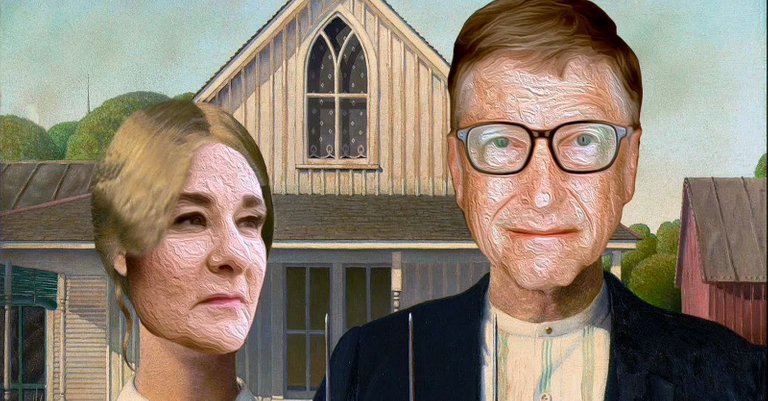


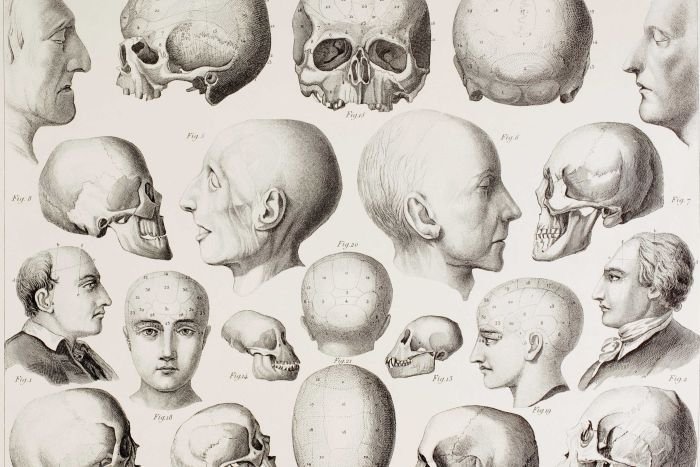
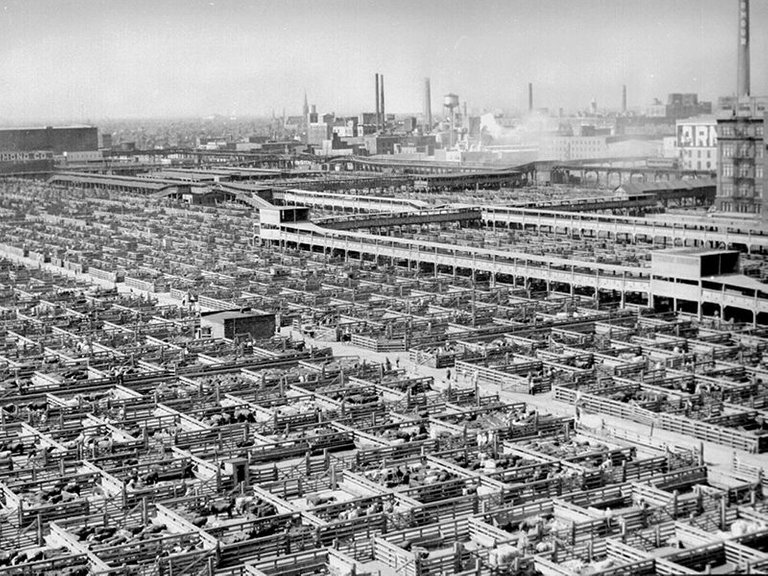


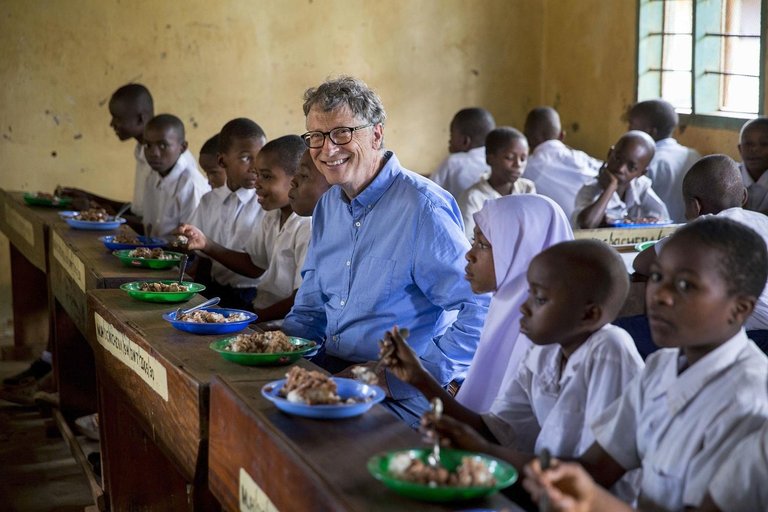
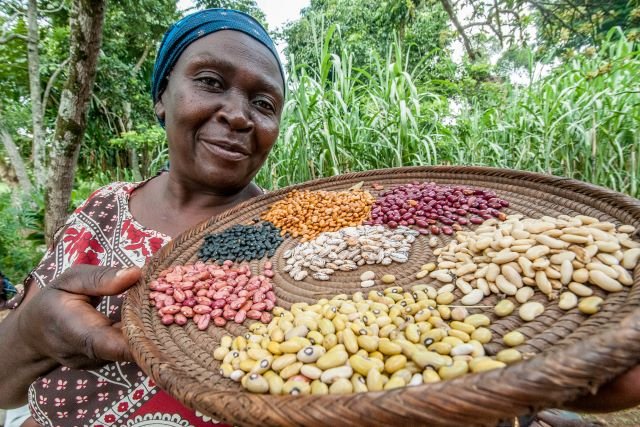
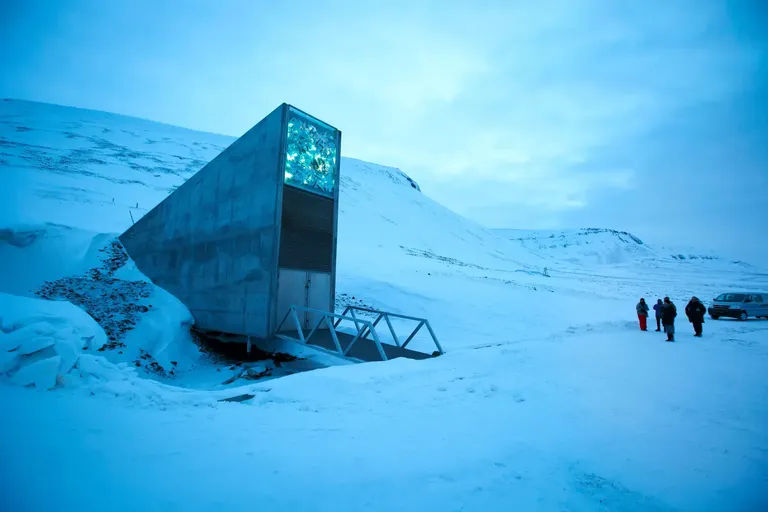
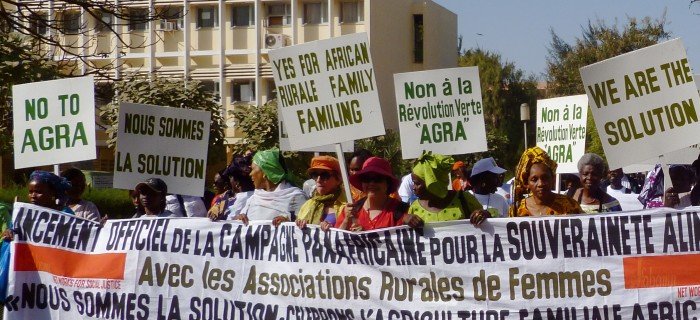

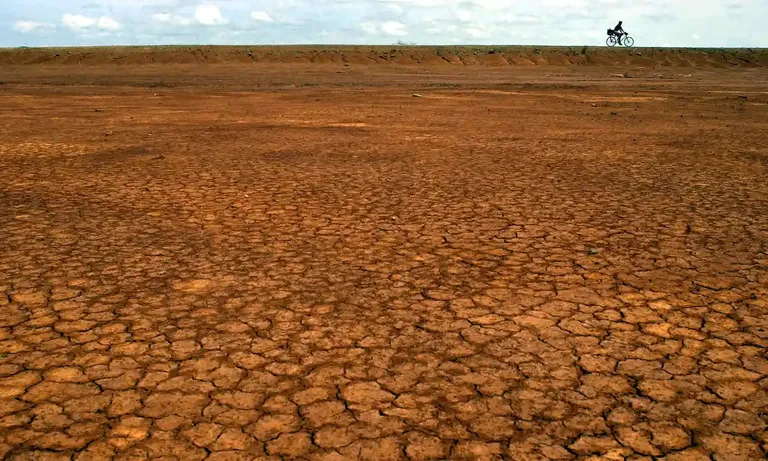
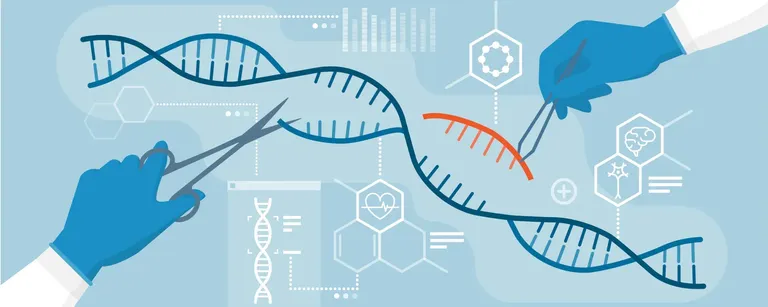
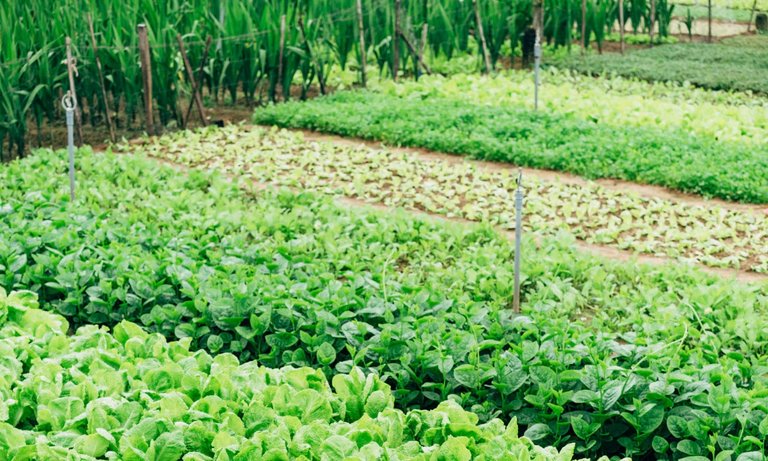
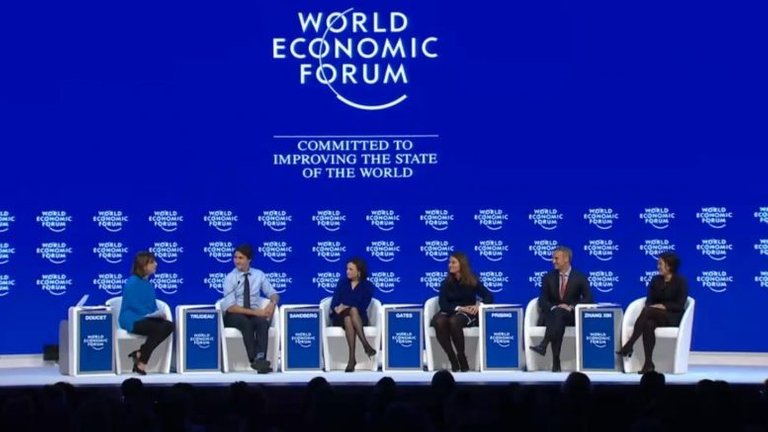
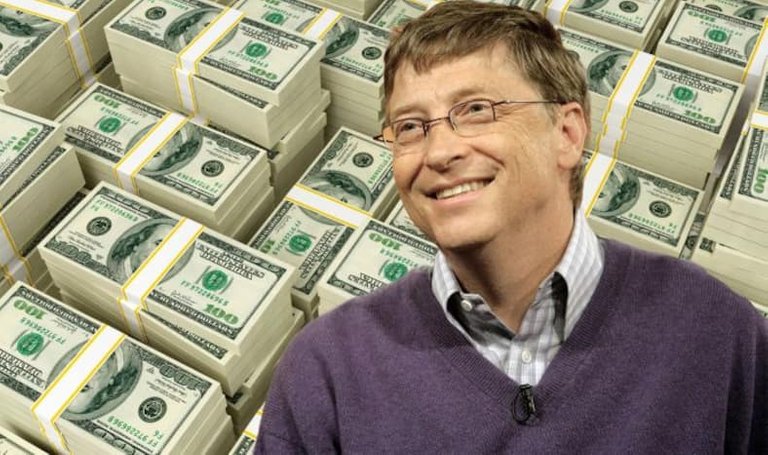

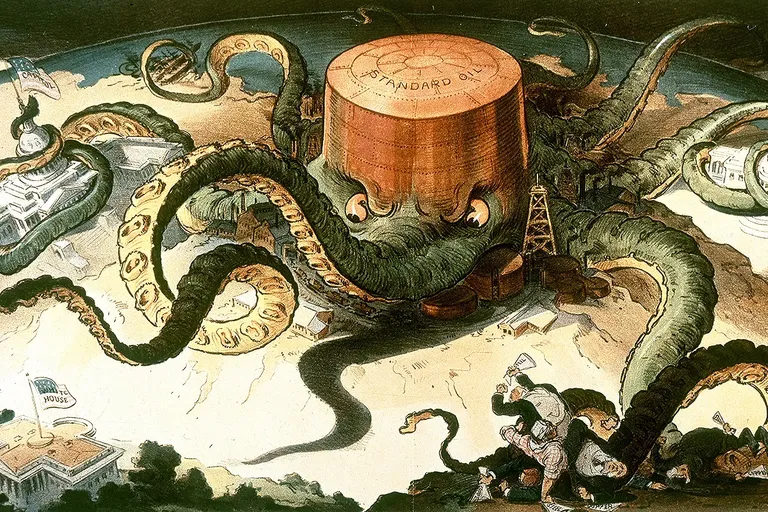
Grow your own food!
I totally agree. Grow our own food @wittywheat. We used to spend the vast majority of our waking hours on the land working with food. Nowadays, most are lucky to spend 5 minutes choosing their ready meal in a supermarket aisle!
Definitely following you holy cow that is quite the read.
And let me know I'd love to give you a hand in navigating and optimizing your account.
You're working so impressive I definitely had to hit the following button and I think I'm going to share this on top of it.
Hi @ganjafarmer, Thanks for following me. And appreciate the comment too. Yes, I could do with some help navigating. It's all very new to me, so trying to get my head round the platform, how it works. I will send you a private message in the coming days.
Absolutely I've got my own private room on discord.
https://discord.gg/eCbmskUJWN
Here's the link so you can come find me and we can get you all set up.
Arrest Bill Gates for multiple crimes against humanity & the planet!
I wish it was that simple @luca1777. Would love to see these criminals arrested, but I do wonder whether if the 'house' is capable of doing its own 'housekeeping.'
The rules, it would seem, are for the lower orders of society and not those making the rules.
It's not that easy, true, but we can "get them".😉
Persistence!
Looks like you are getting the hang of things pretty quickly around here ;)
Thank you for this most excellent coverage of a man who has become a god to so many. I think I mentioned to you that I've seen his biography on the bedside table of a few people over the years but something tells me it doesn't go into the subjects you have covered here. Or indeed his life prior to this, which smacks of a person devoid of any respect for humanity. Am curious to know how long a piece like this takes you to put together?
This actually ties is with another favourite subject of mine, the Grand Solar Minimum and the way in which the controlled demolition of faltering systems is always preferable to their natural collapse. So they know we are fast approaching a time when the food system always breaks down. The weather extremes and food shortages in most parts of the world during the last Solar Minimum are well documented here and what is particularly pertinent about this period is the way in which governments struggled to keep their people happy (and compliant) without enough food to go around. Pretty obvious stuff really. So rather than help humanity prepare for this testing period in an appropriate manner (like with those 'fruit walls' of the 1600s I mentioned in a previous post), they would have us do nothing at all. Or worse, prepare for a warmer future!
The GSM cycle which always causes food problems for humans (and culls us in a natural manner) has basically been hijacked and relabelled to better suit a future in which all food comes from a centralised source. And I hesitate to call it food because the real food will be reserved for the lucky few while the rest get to eat recycled trash, bug proteins and lab grown monstrosities which (oh so coincidentally) seem to be getting a big push at the moment. Only in this way can they be sure we will have no opportunity to rise up against them when times get tough, while at the same time maximising the effectiveness of the Earth's natural culling system.
Kissenger said it best of course with his control the food, control the people quote. And it is no coincidence that Schwab was a student of Kissenger who helped conceive the WEF with dreams of depopulation, all of which fits with the overall vision of Gates and his father before him.
Keep up the great work brother!
Hi @samstonehill
Getting the hang of things, thanks to you ;)
Yes I think we both know people who hold a candle to Bill Gates. I wouldn’t be surprised to find an autographed portrait of his, next to that autobiography on their bedside table!
Interestingly, this is what motivated me to write the aritcle in the first place - hearing people singing his praises. I knew there was hypocrisy written all over Gates way of doing things, but I didn't estimate realise how deep it went!
In answer to your question, the article took 2 -3 months as a part time project. But there is an unofficial biography there, if I can find the time and discipline.
I really enjoyed reading your comment here, and the picture of the fruit wall reminded me of that excellent article you wrote.
And yes, we are approaching a mini ice age, the grand solar minimum, as you pointed out. Auspicious for the predator class pushing the climate narrative, and encouraging the population (who they despise so much), to prepare for the wrong future, to the detriment of their food systems.
It would seem up is down, black is white, and we are the carbon they are trying to eradicate.
Food is life. And as you say he who controls the food controls the people. Reminds me of the ‘Spice’ in the film Dune.
Congratulations @thecogent! You have completed the following achievement on the Hive blockchain and have been rewarded with new badge(s):
Your next target is to reach 300 upvotes.
You can view your badges on your board and compare yourself to others in the Ranking
If you no longer want to receive notifications, reply to this comment with the word
STOPCheck out the last post from @hivebuzz:
Support the HiveBuzz project. Vote for our proposal!
Thanks for the medals @hivebuzz, next target duly noted.
Im going to take a look and vote for your proposal shortly
if he's not the devil he might as well be. Patenting plants in and of itself is not new or bad. If you make a new hybrid and very carefully describe its characteristics then you can patent that hybrid but you can't patent things that already existed.
There are several examples of legal loopholes being exploited for the patenting of non genetically modified organisms: https://www.no-patents-on-seeds.org/en/information/news/european-patent-office-grant-monsanto-company-patent-tomatoes